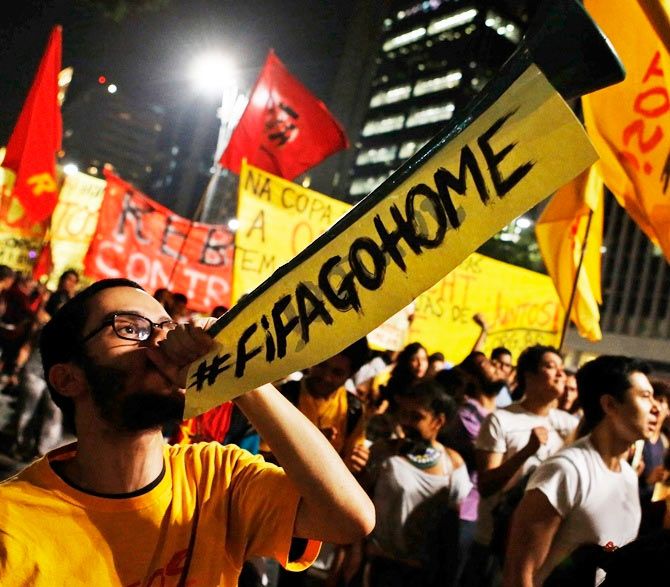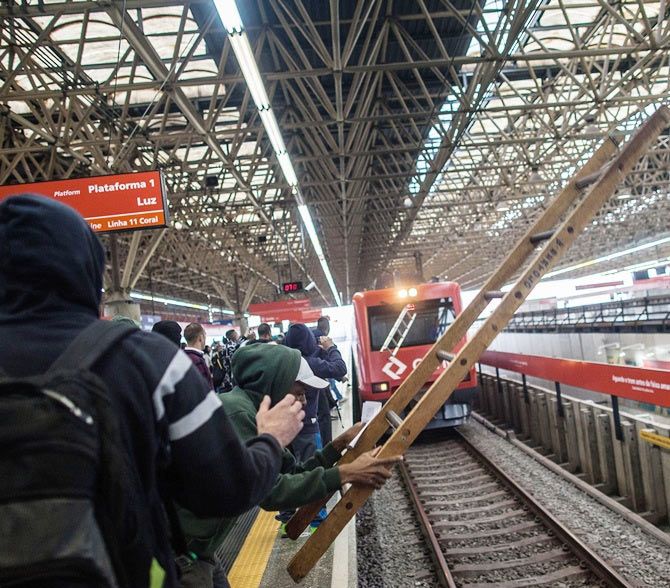'They said the World Cup would help Brazil take a huge leap forwards in terms of public transportation but all they did was the stadiums'

The 12 stadiums used in this year's soccer World Cup cost 50 per cent more than planned and only six of the 35 promised public transportation projects were finished on time, according to an as yet unpublished report from Brazil's Federal Accounts Court.
Twelve arenas were remodelled or built from scratch at a cost of 8.44 billion reais ($3.26 billion), the court said in its most thorough report on World Cup spending since the tournament ended in July. The original estimate in 2010 was 5.6 billion.
The most expensive was the redevelopment of the National Stadium in Brasilia, which cost 1.44 billion reais, nearly twice its original estimate and three times the cost of some of the arenas that were completely rebuilt.
"The venues cost much more than they should have," said Amir Somoggi, a finance and marketing consultant who works with some of Brazil's biggest soccer clubs.
"They went for Pharaonic projects and we got left with white elephants."

With many stadiums delivered at the last minute and transportation projects incomplete or abandoned, there were fears the 2014 World Cup would be chaotic.
However, the tournament was widely considered to be a success, featuring some of the best football for years and causing no serious off-field problems. Germany beat Argentina 1-0 in the final in Rio de Janeiro.
The 130-page report, however, made it clear there was still plenty of work to be done.
The government promised 26 new airport projects but just 14 were finished on time, said the report seen by Reuters and due to be published before Monday.
Only six of the promised 35 public transportation projects were finished by the time the tournament kicked off.
"We were hood-winked," Somoggi said.

"They said the World Cup would help Brazil take a huge leap forwards in terms of public transportation but all they did was the stadiums. The economy is no longer in a great shape so there is no guarantee that they will be finished."
Government officials have repeatedly stressed they will finish what they have started but none of the 29 projects that were unfinished in June have been completed since.
Five of the 29 unfinished projects have not been touched and several others have seen almost no work.
The Court's report, however, was largely positive.
"It is worth stressing that an expressive portion of the projects were at an advanced stage at the time of the sporting tournament, which means their completion is inevitable," it said.
"There is absolutely no doubt that their conclusion will serve as an important legacy from the Cup."
Brazil is also hosting the next Olympic Games in Rio de Janeiro in 2016. The city has said preparations are on schedule, although there are concerns over the sailing and golf venues.











